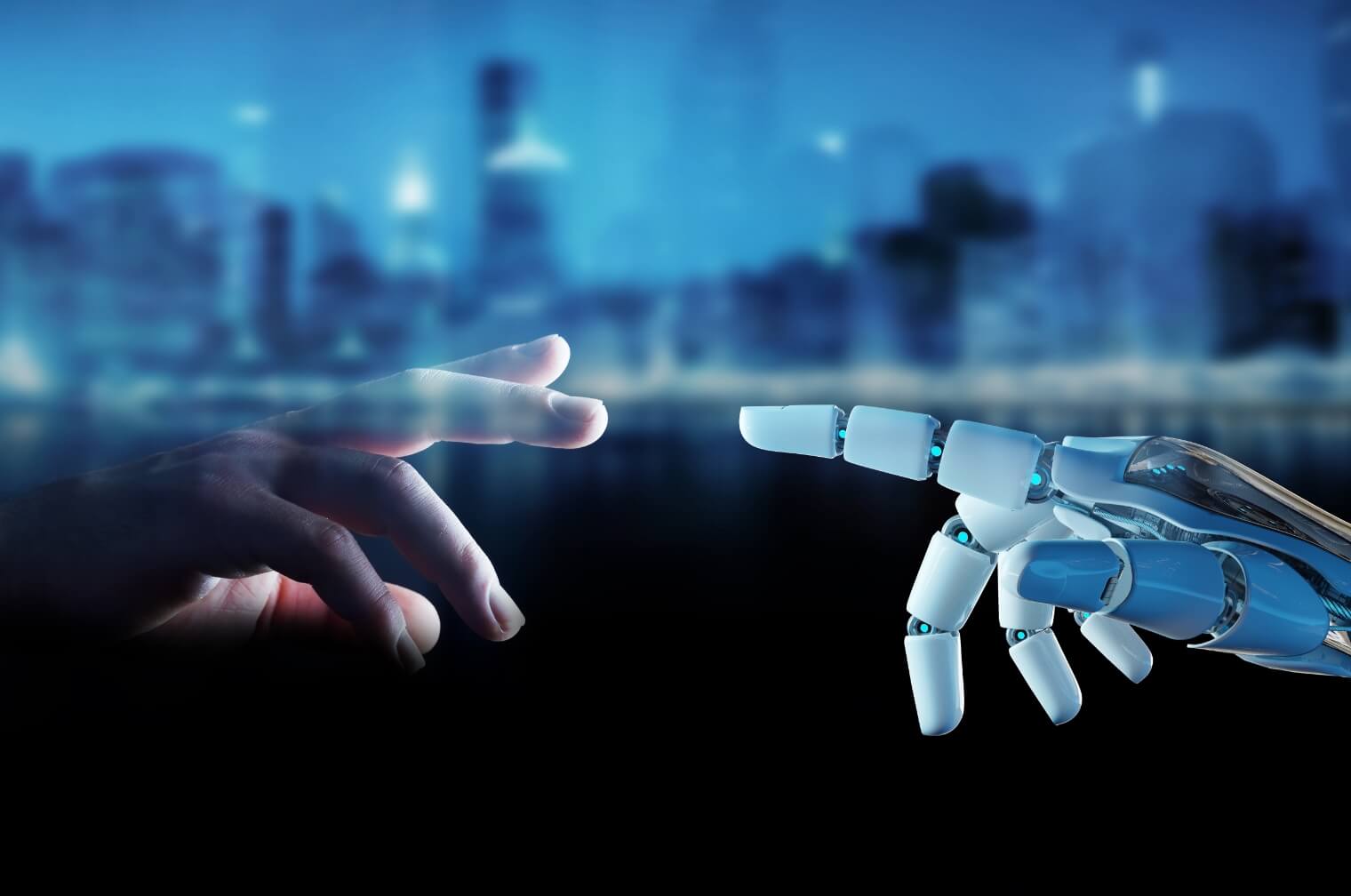The Evolution of Artificial intelligence has been a topic of interest for years, often portrayed in science fiction movies and novels. The possibilities seemed endless, from robots with human-like emotions to self-driving cars and virtual assistants.
However, now fiction is turning into reality. As technology advances, the Evolution of AI is transforming how we live and work. Artificial intelligence development is no longer just a concept in science fiction; it’s a reality transforming our world.
AI has become integral to many industries, from healthcare to finance, and is now a part of our daily lives. In this article, we’ll look at the Evolution of AI and how it has impacted society.
We will explore the journey of artificial intelligence from science fiction to reality and how it impacts our world today.
A glance at history
Artificial intelligence is not a new concept, as its roots can be traced back to ancient Greek civilization. However, technological changes have taken place in the last century, drawing even more attention to artificial intelligence.
One of the first individuals to propose the idea of building a thinking machine was Alan Turing, a World War II codebreaker and British mathematician. He is also credited for creating the Turing test, which is still used today to determine whether a machine can think like a human. Despite this, his ideas were initially dismissed and ridiculed. However, after Turing’s tragic death, artificial intelligence gained much more attention and became a popular topic.
In 1959, American cognitive scientist Marvin Minsky co-founded the AI Laboratory of the Massachusetts Institute of Technology, which led to significant progress in the field during the 1960s and 1970s. Science fiction literature and movies, such as Mary Shelley’s “Frankenstein” and Stanley Kubrick’s “2001: A Space Odyssey,” have also influenced our understanding and development of artificial intelligence. Despite taking many decades for people to recognize the potential of artificial intelligence, big leaders such as Elon Musk and the founder of Tesla constantly talk about it.
Today, the Evolution of artificial intelligence plays a significant role in handling vast amounts of data and makes our work easier by analyzing and upgrading itself to provide more accurate predictions. An example is Netflix, which uses artificial intelligence to suggest movies based on users’ viewing history. As artificial intelligence continues to advance, it will make our work even smoother in the future.
AI evolution effect on business
The Evolution of Artificial Intelligence is exploding in the 21st century, with major corporations investing significant resources to advance and develop this technology. AI is now pervasive and even plays a role in the advertisements we see. Shopping websites use AI to advertise products we have previously searched for, which is just one example of how AI is transforming the world around us.
One of the most significant benefits of AI evolution is its ability to quickly and accurately filter and analyze vast amounts of data. This was previously a time-consuming task, but AI has made it possible to complete the analysis in just a few minutes. Data has become the new currency of the 21st century, and big companies treat it as valuable as gold. The more extensive the database, the greater the power. The rapid emergence of artificial intelligence and machine learning is revolutionizing the business landscape.
Despite this, the impact of artificial intelligence on our lives has been nothing short of remarkable. As robots become more commonplace, we can expect even more transformation in our lives and work. The potential of Artificial Intelligence is limitless you can see example Chat GPT App, and it’s hard to imagine a future without it. We are already seeing increased productivity in the workplace thanks to AI, and by the end of this decade, it will be an integral part of our daily lives. From self-driving cars to cutting-edge medical research, the possibilities are endless.
Here’s the result of a survey done by findweb3 about the Global AI Market and how much it is expected to grow.
In terms of the AI market size, North America leads the way with a market worth $51 billion in 2021, which accounts for almost 60% of the global market share. However, experts predict that the growth of AI will be driven by accelerated adoption in the rest of the world. Asia and the Pacific have been identified as key regions likely to see the highest growth rates, with an anticipated annual increase of 42% to 2030.
As such, the global AI market is projected to experience tremendous expansion in the coming years, with Asia and the Pacific playing a significant role in driving this growth.
Advancement of AI evolution in the modern era
The modern era has seen significant advancements in AI technology, where machines can perform tasks that were once considered exclusive to human intelligence. AI-powered virtual assistants like Siri and Alexa can now understand and respond to human voice commands. Moreover, AI is revolutionizing the healthcare industry by improving patient outcomes and in finance, where it is used to predict market trends and manage risk.
AI algorithms can predict patterns and trends that humans might miss; they are ultimately only as good as the data they are trained on. Moreover, human Evolution is a complex and multifaceted phenomenon influenced by many factors, including genetics, environment, culture, and behavior.
AI can offer intriguing predictions and hypotheses about how human Evolution might proceed in the future; it is ultimately up to humans to shape their Evolution through their choices and actions.
The increasing capability of AI has opened new avenues for industries and is transforming how we live and work. With such rapid progress, the possibilities of what AI can achieve continue to expand, and the future looks bright for this exciting field.
Future of AI
As the field of Evolution of AI continues to progress, the potential for future developments is both exciting and daunting. One of the possibilities is the creation of artificial general intelligence (AGI), which would possess human-like intelligence and reasoning abilities.
This would be a significant achievement in AI and would open new possibilities for solving complex problems, as AI can predict and adapt to human Evolution. However, there is also the possibility of creating superintelligence, which would be far more intelligent than humans.
As we continue to push the boundaries of what’s possible with the Evolution of AI, we must address all concerns and ensure that we develop AI that benefits society while minimizing the risks. The future of AI is limitless, but it is our responsibility to ensure that we create a safe and beneficial future for everyone.
Conclusion
The Evolution of AI has been remarkable. From its origins in science fiction to its current advancements in the modern era, AI has come a long way. However, we must also consider the potential future developments of AI and their impact on society. As we continue to push the boundaries of what’s possible with AI, we must ensure that we do so responsibly and ethically. AI has the potential to revolutionize our world, but it’s up to us to ensure that it’s used for the greater good.
As we move forward, we must ask ourselves how we want AI Evolution to shape our future. What ethical considerations should we consider when developing and deploying AI technologies? By asking these questions and engaging in thoughtful dialogue, we can ensure that AI continues to be a positive force for change in our world.
In conclusion, the Evolution of AI has been a journey from science fiction to reality. It’s now a part of our daily lives, and its impact on society will continue to grow. As we embrace the potential of AI, we must also be mindful of its ethical implications and strive to use this technology responsibly and beneficially.
Frequently asked questions
Some consider AI evolution to be the next step in human Evolution.
The Evolution of AI is the process by which machines are developed to perform tasks that normally require human intelligence, such as reasoning, problem-solving, and learning.
The three eras of AI:
1. The first era, the “Symbolic Era,” was characterized by the development of expert systems that could reason based on rules and logic.
2. The second era, known as the “Connectionist Era,” saw the emergence of neural networks and machine learning algorithms that could learn from data.
3. The current era, the “Intelligent Systems Era,” is defined by the integration of different AI technologies to create more advanced and adaptable systems.
Artificial Intelligence has been evolving for decades, with early developments dating back to the 1950s. However, the recent advancements in machine learning algorithms and the exponential growth of data have accelerated the pace of AI evolution in recent years.

Vishal Patel
Vishal Patel is an experienced Solution Consultant with a proven track record in the information technology and services industry.
